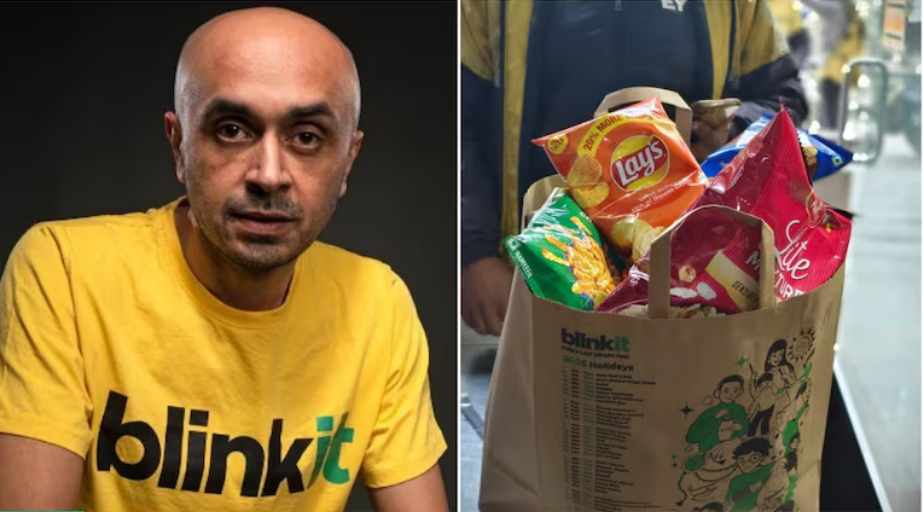
The Maharashtra Food and Drug Administration (FDA) has taken strict action against Blinkit, suspending its food-business license at the Balewadi dark store in Pune. This action was announced on June 9, 2025, after an inspection by FDA officials on June 5, which exposed several food safety and hygiene violations. The store in question was operated by M/s Energy Darkstore Services, a Blinkit partner, and is located in the Baner-Balewadi area near Mitcon College.
During the inspection, FDA officers discovered that the Blinkit store was operating without a valid food license, violating Section 31(1) of the Food Safety and Standards Act, 2006. Although the company had applied for the license in June 2024, it continued operations without approval, which is a serious legal violation.
Apart from the missing license, the FDA identified numerous Schedule 4 hygiene violations. These included food products stored directly on the floor, increasing the risk of contamination, and dust-covered storage racks, dirty floors, and stagnant water puddles that created an unhygienic environment. Additionally, the store lacked a valid pest-control audit certificate, and staff members were found working without basic protective gear like head caps and gloves. There was also no evidence of cold storage calibration, and temperature logbooks were missing, putting perishable items at serious risk.
As a result of these findings, the FDA ordered an immediate suspension of the store’s food operations and sealed the facility to prevent further public health risks. According to Suresh Annapure, Joint Commissioner (Food), FDA Pune, the department has launched random inspections across all quick-commerce dark stores in Pune, with plans to take similar actions against any non-compliant units.
This incident comes shortly after another case where the FDA suspended Zepto’s license at a Dharavi basement facility in Mumbai. That facility was found to have fungal growth, expired products, wet floors, and mixing of fresh and expired stock, prompting authorities to act swiftly. The suspension of Blinkit’s Balewadi facility indicates a growing crackdown on quick-commerce companies that operate dark stores to fulfill fast delivery promises, often within 10–20 minutes.
Quick-commerce platforms like Blinkit and Zepto use hidden mini-warehouses or “dark stores” to deliver groceries and essentials quickly. However, these locations must still follow FSSAI licensing rules and hygiene standards under Schedule 4. The FDA’s latest actions signal that even well-known brands are not above the law and must maintain food safety at the backend level.
The reaction from local consumers has been strong. Gayatri Doshi, a resident of Pashan, said, “It is shocking to see pictures of dirty storage areas. I might start buying again from my local vegetable vendor.” Another resident, Neeraj Kamdar from Hadapsar, added, “Customers have no idea what goes on behind the scenes. There should be stricter norms and better awareness.”
So far, Blinkit has not released an official statement, while Zepto claimed it is working with authorities to resolve issues and ensure compliance. Meanwhile, the FDA has stated that Blinkit must submit a compliance report, after which a re-inspection will take place. If the violations are resolved, the license may be reinstated.
The broader message is clear: food safety is now a top priority, and dark stores—though out of sight—must follow the same health and hygiene regulations as any other food outlet. This growing oversight might lead to city-wide audits, increased investment in backend processes, and greater accountability from delivery platforms.
For consumers, there are some practical steps to ensure safety. Always inspect food packaging for tampering, check if the brand shares health certification details, and use platforms that are transparent about their food sourcing and storage conditions.
The quick-commerce market in India is booming, with experts estimating it to grow to ₹1.5–1.7 lakh crore by 2027. However, this rapid growth should not come at the cost of public health. The FDA’s enforcement measures are a step in the right direction and could serve as a model for regulatory bodies across India.
The suspension of Blinkit’s license highlights a significant gap in hygiene compliance and legal adherence among quick-delivery services. It also emphasizes the need for both corporate responsibility and consumer vigilance. Regulatory bodies like the FDA are ensuring that the convenience of fast delivery does not compromise the health and safety of customers.































